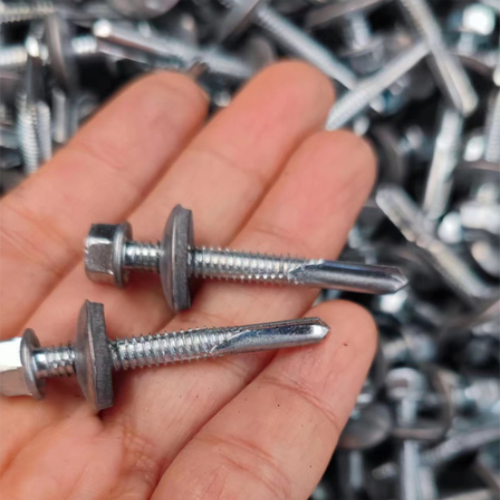Applications and Services for Self-Tapping Screws in Various Industries
Understanding Self-Tapping Screw Applications and Services
Self-tapping screws are a pivotal component in various industries, recognized for their unique ability to create their own mating threads when they are driven into materials. This characteristic makes them an efficient choice for applications requiring durable and reliable fastening solutions. Providing insight into their applications and the services associated with them is essential for manufacturers, engineers, and DIY enthusiasts alike.
What Are Self-Tapping Screws?
Self-tapping screws, often referred to simply as tapping screws, are designed with a sharp tip and threads that allow them to cut into a material. Unlike traditional screws that require pre-drilled holes, self-tapping screws can be used directly in the substrate, which can be metal, plastic, or wood. This ability to drill and fasten simultaneously saves time and increases the overall efficiency of assembly processes.
Common Applications
1. Construction In the construction industry, self-tapping screws are widely used for fastening drywall, wood panels, and metal sheeting. Their ease of use and reliability ensure that walls, ceilings, and roofing systems are securely installed.
2. Automotive The automotive sector often relies on self-tapping screws for assembling various parts, such as trims and panels. Their capacity to withstand vibrations and heavy loads makes them ideal for securing components within vehicles.
3. Electronics In electronics manufacturing, self-tapping screws play a critical role in fastening circuit boards and enclosures. Due to the delicate nature of these components, screws that can be easily installed and removed without damaging the substrate are crucial.
4. HVAC Systems Self-tapping screws are commonly found in heating, ventilation, and air conditioning (HVAC) systems. They are used to assemble ductwork and other components, providing secure fastenings that ensure the efficiency of air flow.
5. Furniture Manufacturing In the furniture industry, self-tapping screws are used for assembling various types of wooden and metal furniture. Their ability to provide a secure fit while allowing for easy disassembly is advantageous for both manufacturers and consumers.
Benefits of Self-Tapping Screws
The use of self-tapping screws offers several benefits, including
self tapping screw applications service

- Time Efficiency The ability to eliminate pre-drilling saves valuable time during assembly. - Cost-Effectiveness Reducing the number of tools and processes required can lower labor costs and increase productivity. - Versatility They can be used in a wide array of materials, making them suitable for diverse applications.
- Reliability Their robust design ensures a strong hold, which helps maintain the integrity of assembled products.
Services Related to Self-Tapping Screws
To accommodate the varying needs of industries and applications, several services surrounding self-tapping screws have emerged
1. Customization Many manufacturers offer customized designs to meet specific requirements, such as unique thread patterns or coatings for corrosion resistance.
2. Technical Support Engineering support is often available to assist in selecting the right type of self-tapping screw for specific applications, ensuring optimal performance.
3. Quality Assurance Various testing and quality control measures are implemented to ensure that self-tapping screws meet industry standards and customer expectations.
4. Bulk Supply Wholesale suppliers provide the option for bulk purchasing, which can reduce costs for large projects or ongoing manufacturing needs.
5. After-Sales Support Post-purchase support helps address any issues customers may encounter, ensuring continued satisfaction and performance.
Conclusion
Self-tapping screws are indispensable in many industries due to their efficiency, versatility, and reliability. As the demand for quick assembly solutions continues to grow, understanding their applications and associated services becomes crucial for success in various trades. Whether in construction, automotive, or electronics, self-tapping screws will remain a staple fastening solution for the foreseeable future.
-
Top Choices for Plasterboard FixingNewsDec.26,2024
-
The Versatility of Specialty WashersNewsDec.26,2024
-
Secure Your ProjectsNewsDec.26,2024
-
Essential Screws for Chipboard Flooring ProjectsNewsDec.26,2024
-
Choosing the Right Drywall ScrewsNewsDec.26,2024
-
Black Phosphate Screws for Superior PerformanceNewsDec.26,2024
-
The Versatile Choice of Nylon Flat Washers for Your NeedsNewsDec.18,2024










